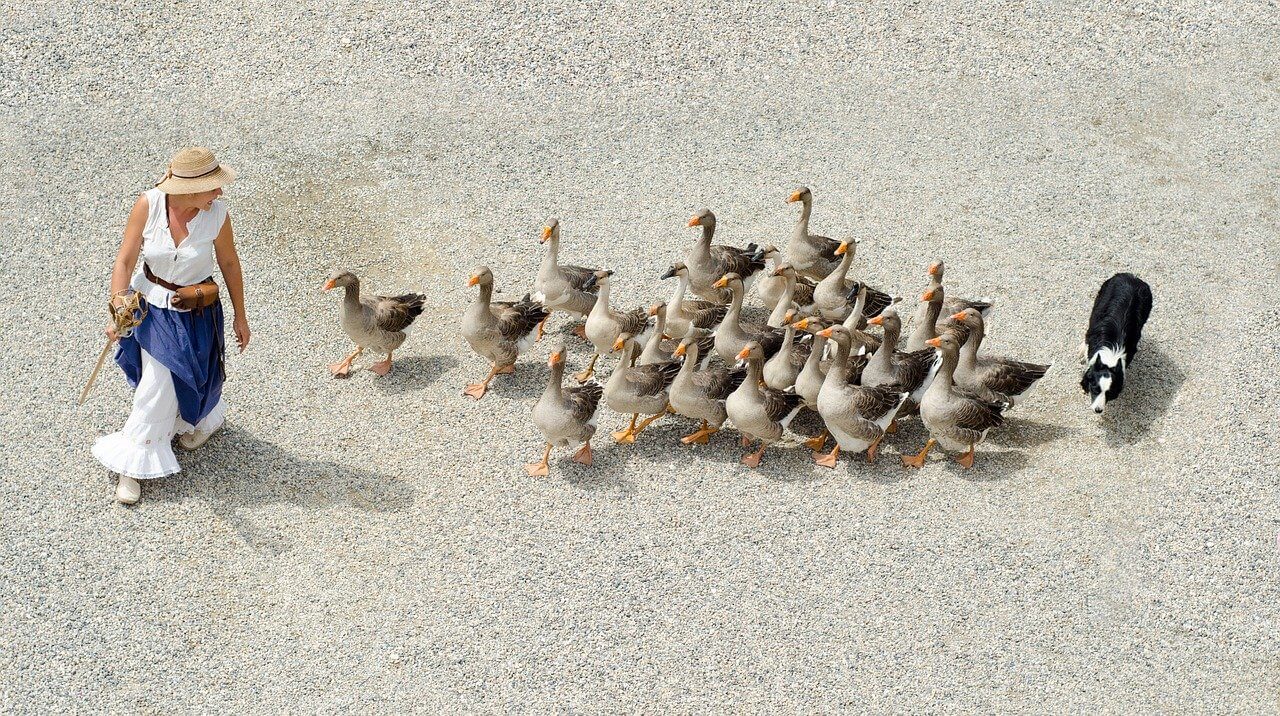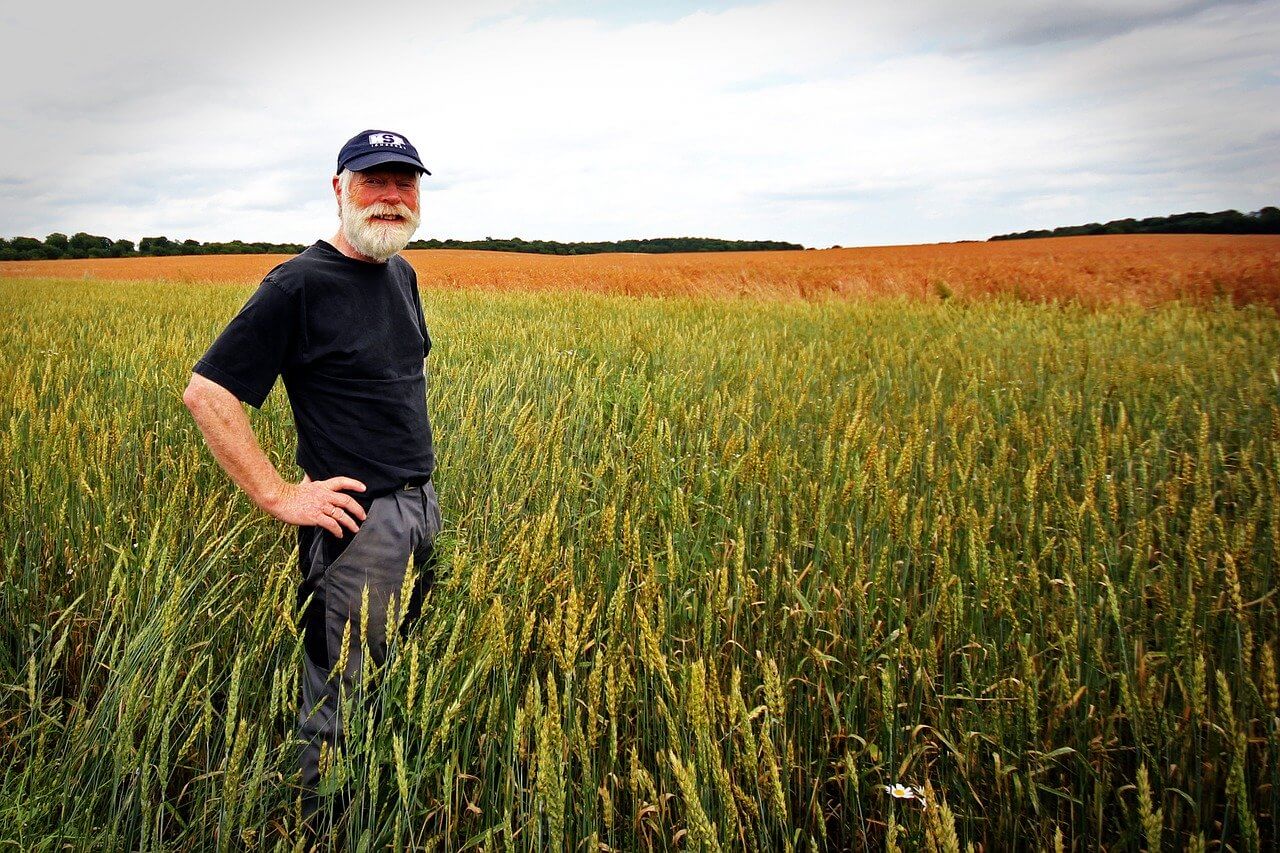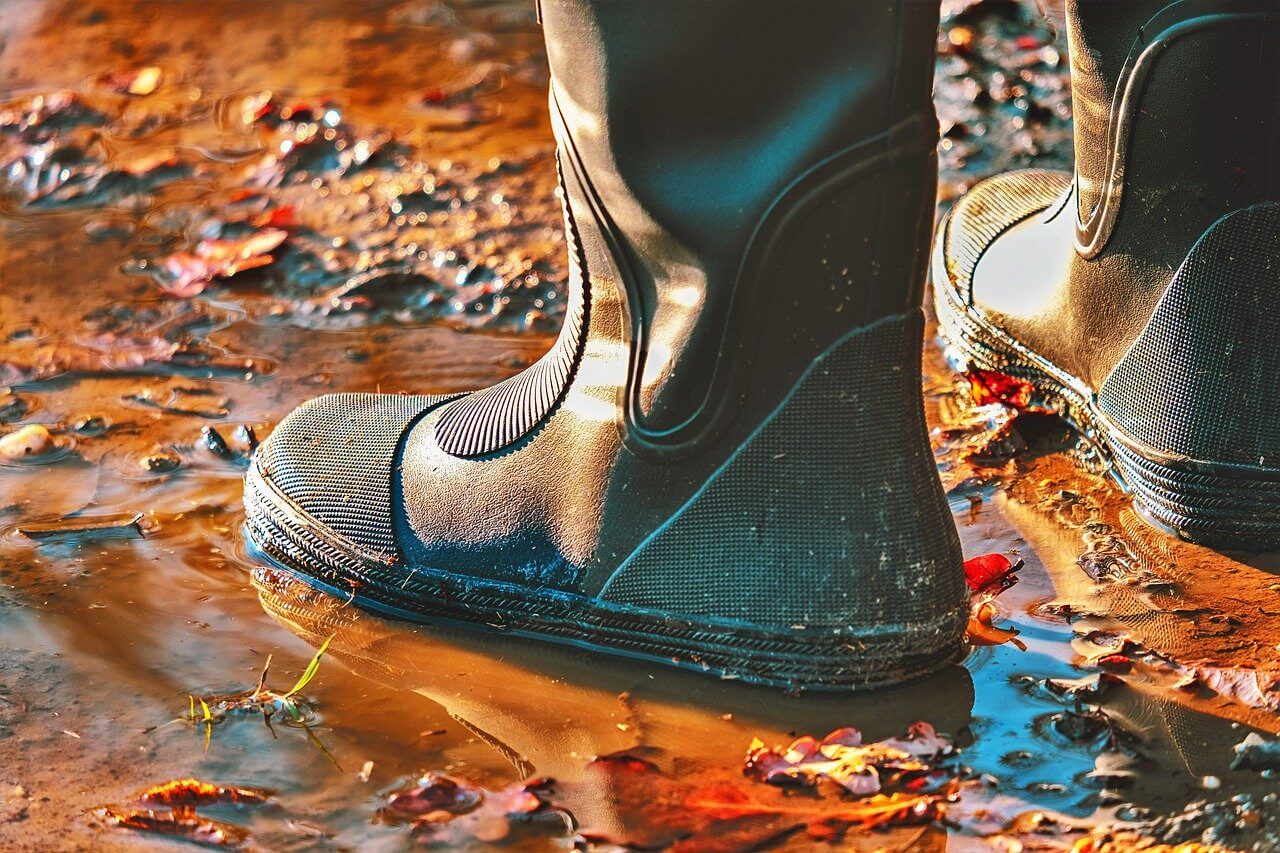Farming is dirty work, so it only stands to reason that you need a specific and special wardrobe to do your farm chores. You’ll want to stay comfortable, well protected and presentable while you work around your homestead or small farm. In this article, we discuss the most important items of clothing that belong in any farmer’s wardrobe. Read on to learn more on how to choose the best clothing for farm work.
What You'll Learn Today
Why Collect A Special Farming Wardrobe?

It’s pretty simple! If you wear your regular, everyday clothes to do things like dig potatoes, muck out stalls, clean the chicken house and the like, you will soon find yourself with nothing presentable to wear in public.
Additionally, everyday street clothes are not usually sturdy enough for the hard work involved in farming. You need trousers, shirts and outer wear that will protect you against sun, wind and rain.
You need gloves to keep your hands safe and clean and shoes or boots that will provide you firm footing and protect your feet against injury. You need undergarments, including socks that will wick moisture away from your skin, prevent chafing and provide the cushioning and protection your body and your feet need.
8 Must-Have Farm Work Wardrobe Items
1. Gather A Collection Of Headwear
You’ll want to have more than one hat because the seasons present different demands.
In the summer time you want to have a wide brimmed hat to protect your face, neck and shoulders from the sun. Your summertime hat should be well ventilated and easy to wash. It should be made of a fabric that offers good UV protection. This is our guide on how to add a sliding knot to your hat.
In the wintertime, switch to a knit watch cap. Look for one that is made of a combination of merino wool and acrylic fibers. This will provide moisture wicking qualities and superior warmth. This combination of fibers can also be machine washed and dried.
2. Neck Gaiters Are Useful And Versatile
You can also protect your neck, lower face and nose against dust, sun, wind and cold with a neck gaiter. A gaiter is a much more useful and comfortable garment than a scarf or a bandanna for these purposes.
In summertime, a lightweight gaiter made of a synthetic material helps prevent sunburn and guards against biting insects to some extent.
In the wintertime, a merino wool gaiter will wick moisture away from your skin while keeping your neck, lower face and nose dry and warm. You can even pull it up high enough to protect your ears against the cold.
3. Work And Garden Gloves
In addition to a good collection of hats and gaiters, you’ll also need a good collection of gloves. Rubber garden gloves are invaluable for working in the garden and for doing chores that may be a bit messy.
These kinds of gloves are usually inexpensive and can even be bought in bundles. It pays to have several pairs and keep them stashed in various areas around your farm so you’ll always have a pair of gloves nearby in a pinch.
You may also need a good pair of leather gloves for handling livestock, moving hay bales and doing a variety of chores.
In the wintertime, you will need good warm gloves, and perhaps even mittens for dealing with snow and ice. Gloves lined with Thinsulate work well to keep your fingers warm, but in very cold weather when you’re doing a job that requires less dexterity (e.g. snow shoveling) you may still wish to top them off with mittens.
4. Classic Overalls And Trousers

Overalls are not especially attractive, but they are extremely comfortable and they are very useful when working around the farm – whether it’s actual farming or some maintenance jobs on your farm.
Overalls provide good coverage and protection for your torso and legs. They usually have lots of pockets for carrying everything you need, and they are easy to get in and out of.
If you live in an area that has very cold winters, you may want to invest in some insulated bib overalls. These are available in an wind-tight, water repellent, insulated, soft-shell fabric that provides one piece protection against wind chill, rain and snow.
Look for cold weather overalls equipped with warmer pockets and heavy duty knee patches for the best and most comfortable wear.
If you prefer to wear trousers, you can’t go wrong with classic jeans or Dickie’s work pants. Just remember that you are not purchasing them as fashion items. Your work trousers should be sturdy, comfortable and roomy enough to allow easy movement throughout the day while doing your chores.
5. Boots And/Or Shoes

You will actually need several different types of boots and shoes for farming and gardening. High-quality footwear will help keep your feet dry and comfortable in the summertime and warm in the winter.
Good sturdy footwear will help prevent injury in the event you drop something heavy on your foot, tangle with heavy equipment or have your foot stepped on by a horse or a cow.
If you’re working with livestock, you’ll need sturdy boots. Look for lace up boots with steel toes and tread that will give you good, secure footing. Well-made classic leather work boots are advised.
For working in your vegetable garden, you may need a pair of rubber clogs, as well as a good pair of rubber boots. This type of footwear is easy to slip on and off and leave at the door when you come inside. You can wash them clean with the hose and not worry about having them covered with muck and mud.
In fact, it’s a good idea to set up a system that allows you to keep all of your farming footwear close to the door. A shoe and boot rack and a boot tray are sound investments for your farm mud room.
6. Choose High-Quality Socks
No matter how much money you invest in your footwear, you’ll be cheating yourself if you wear cheap stocks. One of the most important qualities in a good pair of socks for farming is the ability to wick moisture away from your skin.
Moisture wicking socks are created using materials that draw the moisture away from your skin to the outside of the sock. This helps prevent problems such as athlete’s foot and blisters.
In addition to moisture wicking qualities, you should seek out socks that provide extra padding for the ball of your foot and your heel. If you have weak arches, look for socks that provide support.
7. Protect Your Clothing With An Apron
Even when you’re wearing your designated farm clothes, you may want to wear an apron to protect yourself when doing especially messy chores. For example, if you’re handling chickens, ducks, geese and other fowl, your apron can protect your clothing against bird droppings.
A well-designed apron can also be helpful in a number of ways. For example, an apron that has lots of pockets allows you to carry along tools, seeds, your cell phone, your gloves and anything else you might need. Additionally, if you are collecting eggs, you can put them in the pockets. Just be careful not to trip and fall!
It’s a good idea to keep several clean aprons hanging next to your shoe and boot rack near the door. It should also be noted that adding aprons to your farm wardrobe can add a bit of color and fun.
For gentlemen farmers, barbecue style aprons with various logos can be fun. For lady farmers, bright and colorful aprons add a bit of whimsy to the day.
8. House Dresses
While we’re on the subject of gender specific farm wear, remember that in the olden days, farm wives performed all manner of challenging farm chores while wearing a dress.
During hot summer months, a cotton dress with plenty of pockets and an apron can be a comfortable and practical garment on the farm. This is especially true for gardening chores, gathering eggs and other light work.
Dress In Layers To Be Ready For Any Weather
When you work outdoors, you must be prepared for any kind of weather. That’s why it’s a good idea to develop the habit of dressing in layers. You’ll want to have a base layer, a mid layer and a top layer.
Your base layer or undergarments should wick sweat away from your body. This is important both in hot weather and in cold weather. For cold weather, you’ll also want your undergarment to hold warmth close to your skin. Long Johns made of a merino wool blend will provide both of these qualities.
On top of your base layer, you’ll want a mid layer. In the summer time, this can be a lightweight, airy shirt or blouse or a T-shirt. In the winter, top this off with a hoodie or sweatshirt made of fleece.
If you live in a very cold area, you may also want to wear an insulated vest to help keep your torso warm. Keeping your vital organs warm enough will also help improve your blood circulation so that your arms and hands stay warmer as well.
In the spring and summertime, your top layer could be a denim jacket or windbreaker that you might never wear, but it is still a good idea to have this top layer handy in case the wind kicks up.
In autumn and winter choose a good insulated jacket as your top layer. Stay away from outer garments that need to be taken to the dry cleaner. Look for modern, water repellent, insulated outerwear made of synthetic and/or cotton materials that can be machine washed and dried as needed.
3 Must-Have Homestead Clothing
Invest In Good Rain Protection
Keep a good, lightweight rain jacket or poncho in each of your farm vehicles so that you can be ready for any unexpected rain. Staying dry is essential to your health and safety in cold weather, and it saves time anytime of year because you won’t need to stop and change clothes because you’ve suddenly been unexpectedly soaked.
Thank you! This was so helpful as we just bought our first farm and I’m a newbie even though my husband is not. 🙂
I have farm and looking for best clothing ideas for farm work.